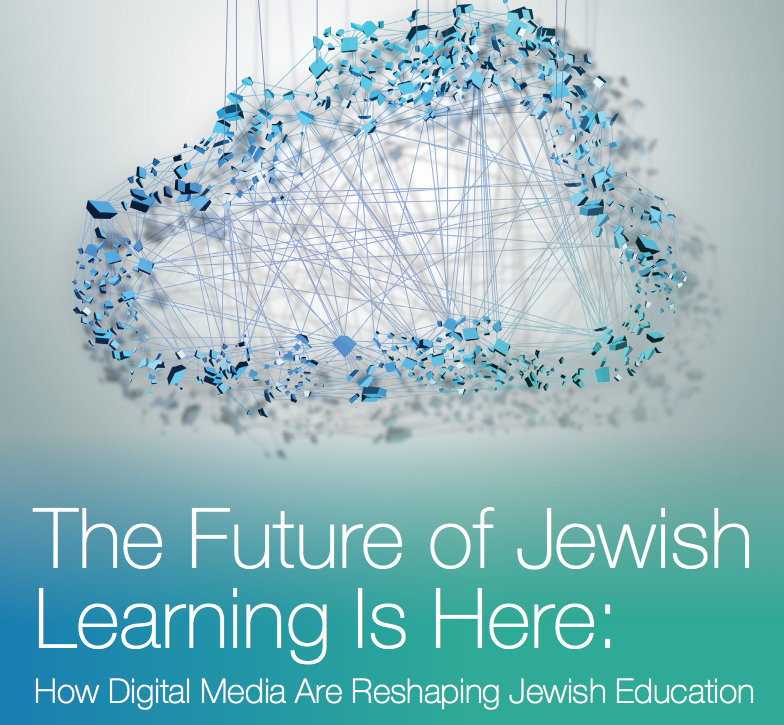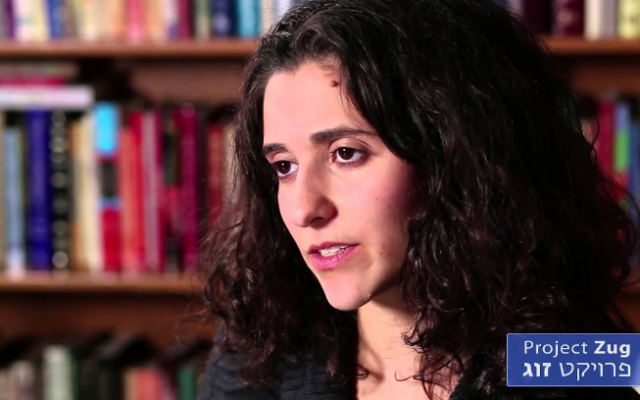Digital Jewish Learning Seen as Complement to Synagogue Life
For Jewish educators, new online tools do not supplant the role of the synagogue in Jewish education, but supplement and enhance it.
It was as a teenager at Camp Ramah Darom in the North Georgia mountains that Avi Killip first thought about changing the direction of Jewish education. Although she had a Jewish day school education and was active in synagogue youth programs, it was the less formal education in the mountains that really shaped her future.
“I was just moved by Judaism in all of the ways. I thought as a kid that G-d lived at camp. I just felt a much more direct connection.”
Over 15 years later, with three children of her own, Rabbi Killip is trying to bring that same connection she felt then to her work on the cutting edge of Jewish education.
Today she’s the vice president of strategy and programs at Hadar, the innovative Jewish learning center on Manhattan’s Upper West Side. And although she’s far from the mountains of Georgia she is trying to bring the same sense of joy and connection that she first felt there and later as a rabbinic intern at Atlanta’s Congregation Shearith Israel.
Her pathway to Jewish learning and spiritual connection is Project Zug, an online educational initiative that she runs for Hadar. For as little as $36 students can choose from more than three dozen courses on subjects that range from the music of Bob Dylan and Leonard Cohen to the laws of kashrut.
Teachers from Hadar and outside organizations such as Hillel International frame the subject matter throughout the weekslong duration of each class, but the real learning comes from the students themselves. Each student is partnered with a chevruta, another student with whom they discuss questions from a handout provided.
The system of chavruta, or study partners, goes back to the yeshivas of the shtetls and ghettos of medieval Eastern Europe. In Project Zug, the back and forth dialogue is helped along by short videos of eight to 10 minutes long and video chat technology.
“I really believe that chevruta learning is magic. It’s so empowering and so meaningful and so relational. I think it’s such a wonderful way to learn that I anticipate it growing even faster than it has.”
More than a thousand students connected online for the courses last year that are supported by a blue-chip collection of Jewish philanthropies such the $2.1 million grant that the Jim Joseph Foundation made two years ago to Hadar.
The foundation has bet heavily on web-based Jewish learning, committing more than $10 million to a number of innovative online initiatives.
Earlier this year the foundation released the first major study of the impact of web-based learning on the process of Jewish education entitled, “The Future of Jewish Learning Is Here: How Digital Media Are Reshaping Jewish Education.”

In his introduction to this pioneering study of web-based Jewish learning, Dr. Ari Kelman, who teaches at Stanford University, commented in the report that “the research team offer compelling evidence that serious Jewish learning indeed happens online. The research also shows ways in which online learning is distinct from offline learning and ways in which these two domains are complementary and linked.”
For Rabbi Killip and others who run initiatives such as Sefaria, Kveller and My Jewish Learning, the goal is not to try to supplant the role of the synagogue in Jewish education, but to supplement and enhance it.
The work of such websites as BimBam, Sefaria, My Jewish Learning and Pardes Elmad are aimed at strengthening existing educational institutions.
“There is really a limit to the amount of adult ed classes a synagogue can offer,” Rabbi Killip said. “The variety we have on Project Zug’s course list allows people to study so many subjects with a compelling vision of Torah and Jewish life that’s spiritually meaningful, uncompromisingly honest and socially responsible,” she said.
“It’s just something I can do just for pure thought and open-mindedness and inspiration, and where I can just focus on wanting to be in the present moment” as one of the anonymous Jim Joseph Foundation study participants described her Project Zug experience, ‘[with a] mindset of being deep in thought and having a study-buddy.’”
In an age in which synagogues are undergoing rapid change and technology is becoming a part of every interaction we have with others, online Jewish education is no longer separate from all the other learning experiences, both online and offline.
“We are interacting with these tools that increasingly blend relationships between online and offline worlds,” as the Jim Joseph Foundation put it. “Recognizing that digital learning environments are not divorced from the physical world reframes the phenomenon from one that happens ‘out there’ in cyberspace to one that is deeply embedded in our everyday lives.”
For Rabbi Killip and Hadar’s Project Zug, the mission is all about connecting us to Jewish tradition just as we are connected to each other.




comments